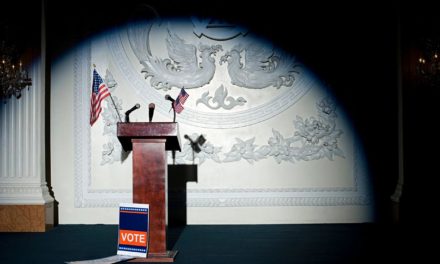The First Amendment to the United States Constitution protects writers. It allows us to write, orate, hold forth, market, condemn, and engage in other speech-based activities. Most of us write truthfully, our first ethical imperative. Beyond that foundational mandate, it gets complicated. We are not constitutionally protected when we write lies, dammed lies, or statistics. We may express opinions but not disparage others. Consequently, it’s crucial to know exactly what the First Amendment’s right of free speech protects and what it does not. It protects the free exercise of speech, except for obscenity, child pornography, incitement to violence, and true threats of violence.[1]
That and the absurdity of yelling fire in a crowded theater when there is no fire. “If your screaming ‘fire’ when there is no fire, and by doing so you incite panic, then yes, your yelling fire when there is no danger of fire is an illegal act. If your yelling fire has the same effect on those around you, as if you yelled ‘popcorn’ then you haven’t broken any laws. It’s how people react to you yelling fire that determines whether you’re a fool or just someone who enjoys seeing people get upset. The first amendment does have some reasonable restrictions.”[2]
We are free to speak or write. We can opine favorably or unfavorably. We can share our own ideas, in writing, and other people’s ideas if we cite them as sources, recognize their right to free speech, or footnote them. All of this is protected writing without fear of punishment by our government—that is precisely why the First Amendment prohibits Congress from passing laws that curtail freedom of speech.[3]
Some writers focus on obscenity while others write about indecency. But they live in different worlds as far as the First Amendment is concerned. “In Alliance for Community Media v. FCC, the Supreme Court found that obscenity and child pornography have no right to protection from the First Amendment, and as such, the government has the ability to ban this media altogether. But when it comes to indecency, which is generally defined by the courts as something describing or depicting offensive sexual activity, the Supreme Court has found this speech protected. But the government can regulate this speech on radio and television, so long as it’s for a compelling reason and is done in the least restrictive manner.”[4]
And of course, the First Amendment protects writers who are actual persons, as opposed to corporations, nonprofits, LLC’s, NGO’s government entities, state actors, or other fictions.
The Free Speech Clause of the First Amendment constrains governmental actors and protects private actors. To draw the line between governmental and private, this Court applies what is known as the state-action doctrine. Under that doctrine, as relevant here, a private entity may be considered a state actor when it exercises a function “traditionally exclusively reserved to the State.[5]
As occasionally happens, Madame Wikipedia differs discretely. She insists that freedom of speech is a principle that supports the freedom of an individual or a community to articulate their opinions and ideas without fear of retaliation, censorship, or legal sanction.[6] I’m not sure she went to law school, but she vacillates. “Freedom of speech and expression, therefore, may not be recognized as being absolute, and common limitations or boundaries to freedom of speech relate to libel, slander, obscenity, pornography, sedition, incitement, fighting words, hate speech, classified information, copyright violation, trade secrets, food labeling, non-disclosure agreements, the right to privacy, dignity, the right to be forgotten, public security, and perjury.”[7]
The ACLU helps by reminding writers that education is not just about books and grades. It’s also about learning how to participate fully “in this life of this nation.”[8] The First Amendment amends the Constitution by adding a Bill of Rights to our core founding document. They correctly remind writers that we have freedom of expression, thanks to the First Amendment. “In 1969 in Tinker v. Des Moines Independent Community School District the Supreme Court held that students in public schools – which are run by the government – do not leave their First Amendment rights at the schoolhouse gate. This means that you can express your opinions orally and in writing – in leaflets or on buttons, armbands, or T-shirts.”[9]
Proving that we are only human, writers sometimes forget what life in America would be like without our freedom of speech. We could not safely criticize government officials, test their theories against those of others, counter negative expression with a different viewpoint, or express our individuality and autonomy.[10]
Arguably, the most elegant statement about freedom of speech came from Justice Bengamin Cardozo. He said it was, “The matrix, the indispensable condition, of nearly every other freedom.”[11] Words can be painful. And that is particularly true in the age of social media, when a viral tweet or insensitive post can hurt feelings and damage reputations.
Despite this reality, the United States maintains a strong legal and cultural tradition of free speech. While many Americans take it for granted, the tradition is far from universal. Many developed nations restrict speech that is deemed hurtful or offensive. And in the United States, there is increasing sentiment that some speech is not worth protecting.”[12]
In addition to reminding us how unique the right to freedom of speech and expression really is, the Hoover Institution makes incisive connections between writing and freedom. “The First Amendment clearly covers the spoken word, written pamphlets, and books. By analogy, it also reaches other expressive activities like drawing, dancing, and acting. But no one could claim that it also protects mayhem, murder, defamation, and deceit. The only way to draw the right line—between expression and violence—is to recognize that the First Amendment is as much about freedom as it is about speech. The necessary theory of freedom applies equally to all forms of speech and action, and it draws the line at the threat or use of force, even if the former counts as speech and the latter does not.”[13]
Our vaunted freedom of speech is one of the most debated political issues in modern history. Some writers think it is dangerous. “An increasing number of people argue that free speech is dangerous because it allows people to say hurtful things. They argue the freedom of speech is just a piece of rhetoric used by those who want to spew offensive ideas. . . It is true that not all ideas are good or beneficial. Some ideas are bad, false, or even evil. But the way to respond to these negative ideas is not to shut down speech through government interference. In fact, it is exactly the opposite. In a society governed by free speech, each person can express their beliefs. If someone expresses a bad idea, every American has a right to respond to that statement with a positive and truthful one. Robust debate is essential to determining which ideas are true and good. When more people speak up for the truth, false and worthless statements are recognized for what they are.”[14]
The Ford Foundation released a powerful connective between the freedom of speech and the responsibility to listen. It aims directly at the ethics of how and what we write. It defined the power of speech as a moral renovator. “As the phrase ‘moral renovator’ suggests, free speech gives us the tools to repair, update, and improve our society and its principles, the way one might consider rebuilding a home. We can address damages, tear down harmful walls, open new doors, and even restore a crumbling foundation. This power to remake ourselves is partially why the freedom of speech is enshrined in the very first amendment to the U.S. Constitution, and why it is the first freedom that President Roosevelt asserted in his iconic speech. It must come first because our right to speak freely is a prerequisite for all of our other freedoms—and for living in a free society. Without freedom of speech, there is no preacher in the pulpit, no defense at a trial. Without freedom of speech, we cannot cast our vote or call our representatives. Without freedom of speech, there is no women’s suffrage or March on Washington, no marriage equality, or Black Lives Matter or #MeToo movement.”[15]
The Ethics Explainer is an excellent resource connecting the ethics of our laws with writing about legal issues like the First Amendment’s protection of free speech and expression. “Part of what makes humans unique is our freedom to determine how we’ll act. Whenever we make a choice, it was possible for us to have made a different one. . . Ethics is only possible because we can act against our nature, based on our conscience. It stops us from simply describing what is likely to happen and allows us to make judgements about what should happen. . . Ethics asks us to take responsibility for our beliefs.”[16]
Writers are protected by the First Amendment. We should also accept the burden of that protection by writing ethically as well as truthfully. We are not politicians whose relationship with truth, ethics, or accountability is controlled by adherence to the party or the so-called “base.” We’re writers. The difference is profound.
[1] https://www.psu.edu/news/research/story/probing-question-are-there-limits-freedom-speech
[2] https://www.quora.com/Is-it-illegal-to-yell-fire-when-there-is-no-fire
[3] https://www.law.cornell.edu/wex/freedom_of_speech
[4] 56 F.3d 105 (D.C. Cir. 1995)
[5] https://supreme.justia.com/cases/federal/us/587/17-1702/
[6] https://en.wikipedia.org/wiki/Freedom_of_speech
[7] Ibid.
[8] https://www.aclu.org/documents/your-right-free-expression
[9] Ibid.
[10] https://www.thefire.org/news/arguments-freedom-many-reasons-why-free-speech-essential
[11] Ibid.
[12] https://www.hoover.org/research/free-speech-1
[13] Daniel Heil, Peter Berkowitz, Richard A. Epstein, Ayaan Hirsi Ali and David Davenport. “Free Speech.” https://www.hoover.org/research/free-speech-1
[14] https://adflegal.org/article/what-freedom-speech
[15] https://www.fordfoundation.org/news-and-stories/big-ideas/with-four-freedoms-four-responsibilities/with-the-freedom-of-speech-the-responsibility-to-listen/
[16] https://ethics.org.au/about/what-is-ethics/

I am an author and a part-time lawyer with a focus on ethics and professional discipline. I teach creative writing and ethics to law students at Arizona State University. Read my bio.
If you have an important story you want told, you can commission me to write it for you. Learn how.






 I am an author and a part-time lawyer with a focus on ethics and professional discipline. I teach creative writing and ethics to law students at Arizona State University.
I am an author and a part-time lawyer with a focus on ethics and professional discipline. I teach creative writing and ethics to law students at Arizona State University.  My latest novel is Hide & Be.
My latest novel is Hide & Be.  If you have an important story you want told, you can commission me to write it for you.
If you have an important story you want told, you can commission me to write it for you.